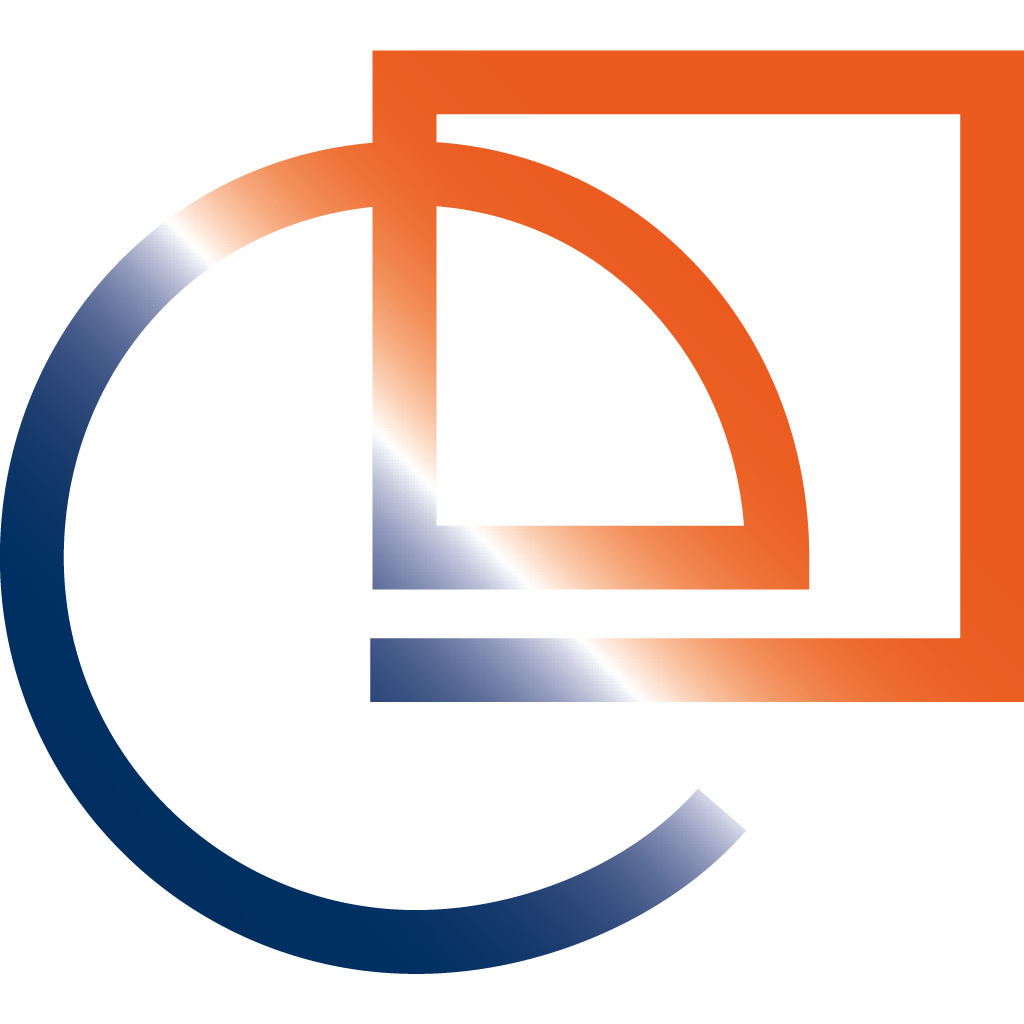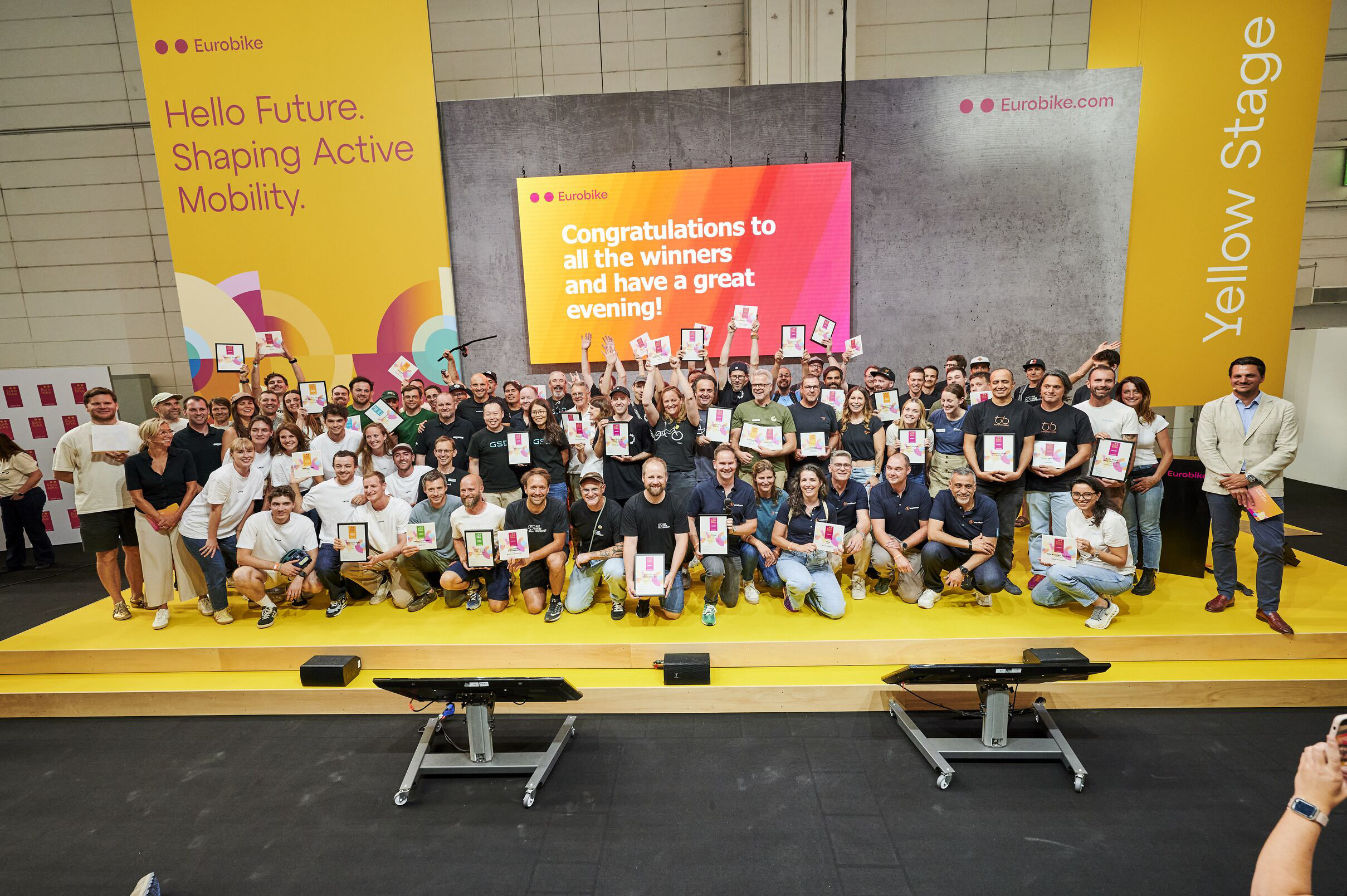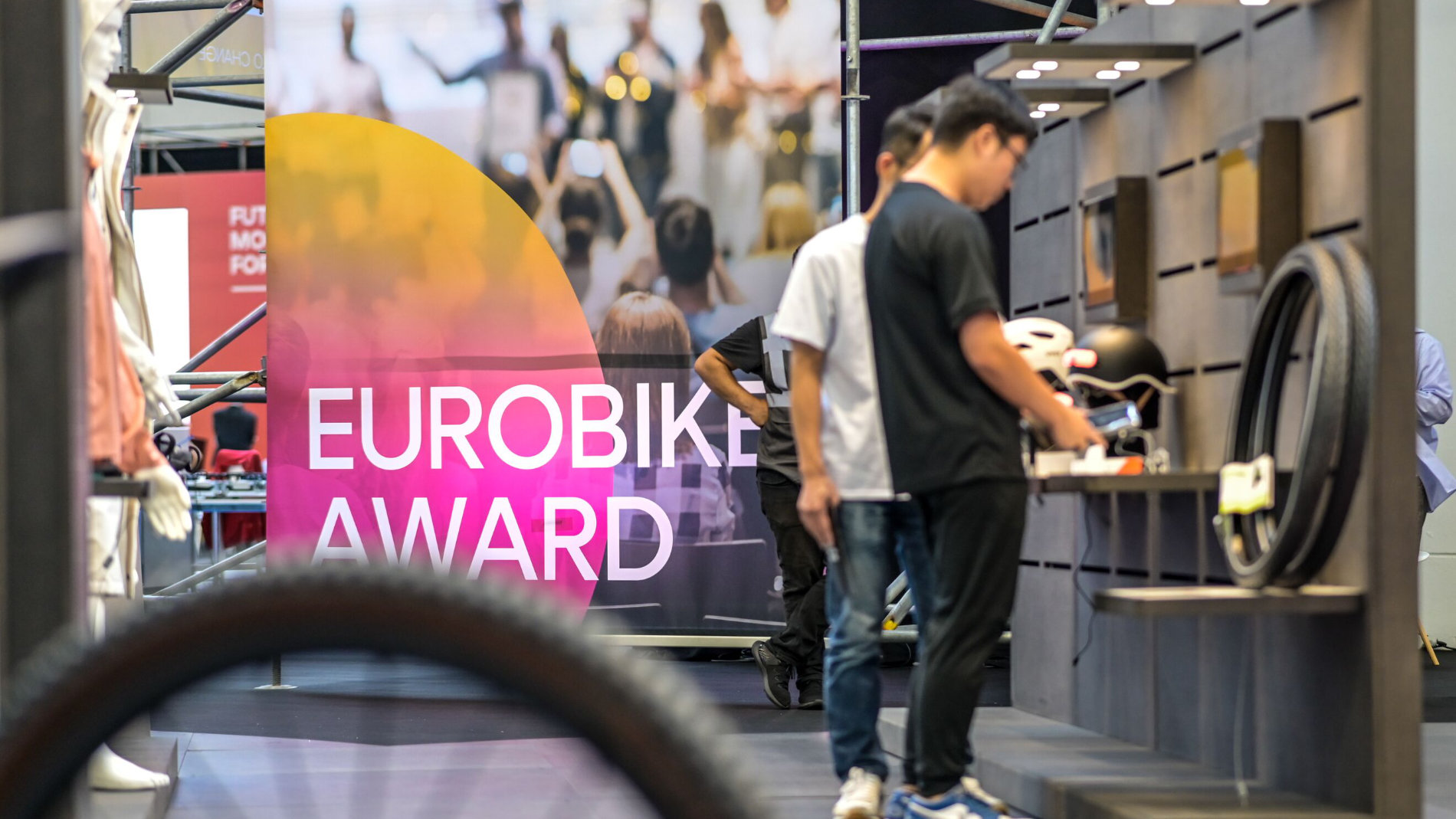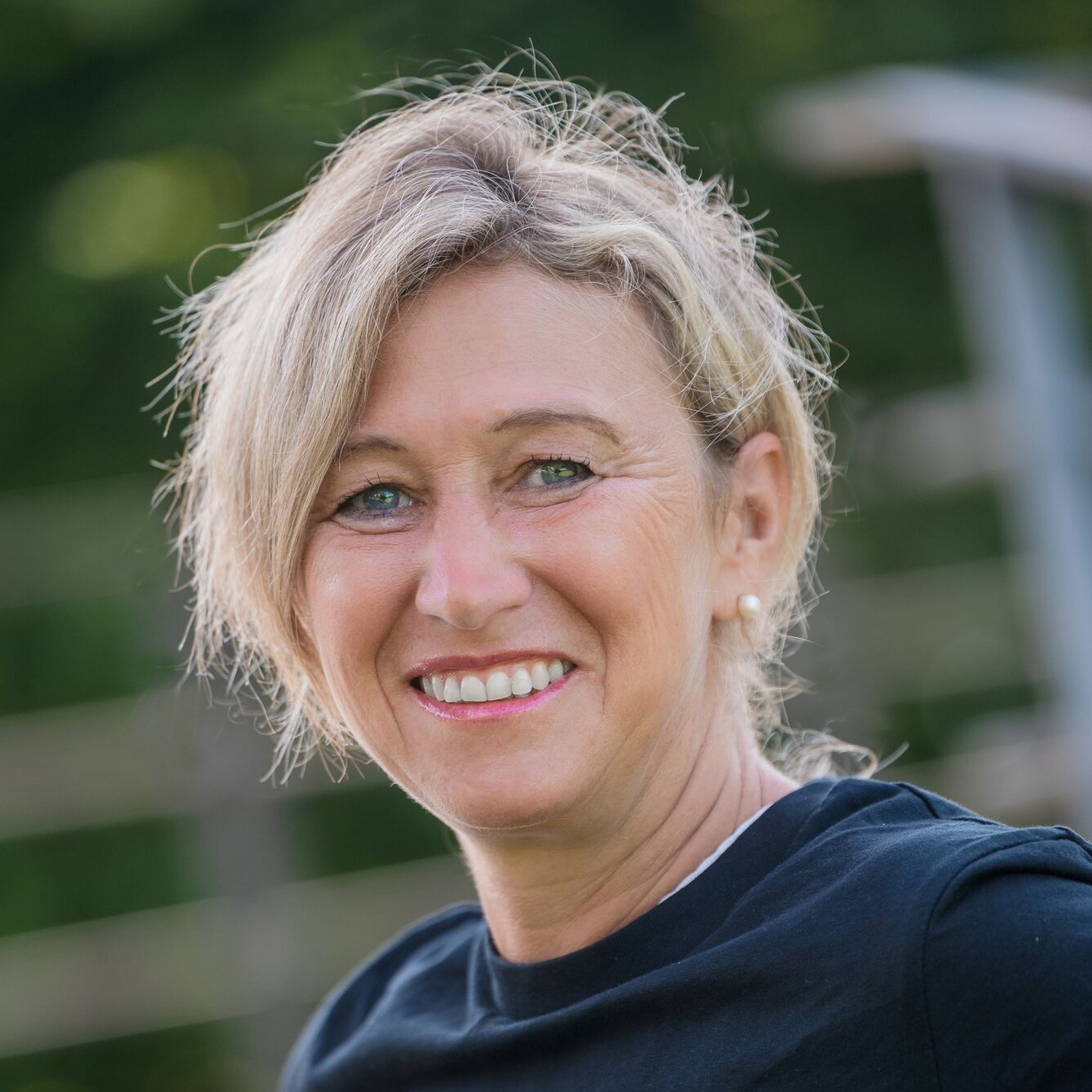The EUROBIKE AWARD takes place this year for the 20th time. The hunt is on to find the best products and concepts in the bike and e-mobility world – from companies who are not prepared to just sit with the bunch, but seek to rethink and redefine mobility. The award highlights solutions that combine exceptional innovation, sustainability, and user-friendliness.
Submission Documents
Overview key dates:
- Submission opens 26 January 2026
- Submission deadline 17 April 2026
- Initial selection 27 - 30 April 2026
- Judges’ panel meeting 20 - 21 May 2026
- Winners announced at award ceremony 24 June 2026
You can enter your products and projects in ten different categories for the EUROBIKE AWARD – Bikes, E-Bikes, Lightweight Electric Vehicles, Electric Vehicles , Components, Accessories, Clothing and Accessories, Digital Solutions, Mobility Solutions and Infrastructure as well as Adventure Equipment. It is also possible to enter prototypes and one-off pieces for the award.
You’ll find all the information you need in the submission documents.
You’re a start-up? Even better, we support you with discounted participation rates!
Categories
1. Bikes - All types of bicycles without an e-drive system
2. E-Bikes - All types of bicycles with an e-drive system
3. Lightweight Electric Vehicles / Small Motorbikes
- L1e Light two-wheeled motor vehicle,
- L6e Light four-wheeled motor vehicle
- L2e Three-wheeled moped
- L3e Two-wheeled motorcycle
- L4e Two-wheeled motorcycle with sidecar
- L5e Three-wheeled motor vehicle
- L7e Heavy four-wheeled motor vehicle
4. Small Electric Vehicles - E-scooters, segways, electric skateboards, monowheels, onewheels, hoverboards, hover shoes/e-skates, etc.
5. Components - Handlebars, brakes, gears, crank arms, pedals, dynamos, frames, tires, forks, saddles, electrical components, etc.
6. Accessories - Bike computers, water bottles, bells, pumps, grips, bags, lights, locks, mudguards, tools, etc.
7. Clothing and Accessories - Shorts, leggins, jerseys, baselayers, jackets, shoes, helmets, gloves, glasses, backpacks, etc.
8. Digital Solutions - Apps, concepts, campaigns, sharing concepts, etc.
9. Mobility Solutions and Infrastructure - Smart facilities, urban furniture, fleet and company vehicle solutions, micro hubs, mobility on demand, concepts, etc.
10. Adventure Equipment - Tents, sleeping bags, sleeping mats, camping cookers, plates & cutlery
Evaluation Criteria
Entries are evaluated by the eight members of the expert panel according to the following criteria:
- Degree of innovation
- Functionality
- Design
- Workmanship and choice of materials
- Sustainability
PR and Marketing Tips
Downloads
- Submission Documents (pdf, 3 MB)
- Terms & Conditions (pdf, 221 KB)
- PR and Marketing Tips (pdf, 4 MB)
EUROBIKE AWARD Jury 2026
The EUROBIKE AWARDS 2026 are chosen by an independent panel of judges The panel is composed of international experts from the bike, mobility, and design sectors.
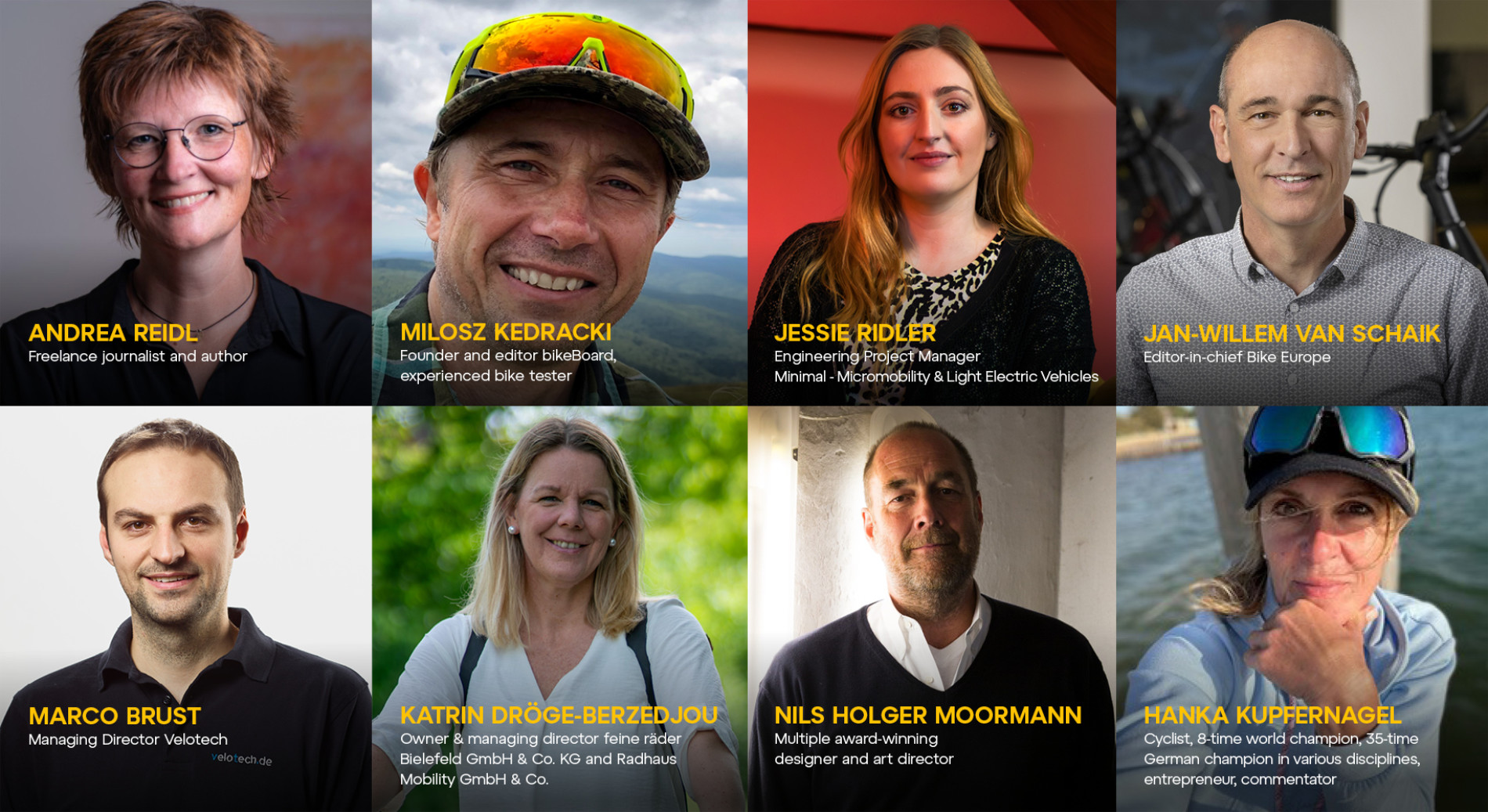
Andrea Reidl
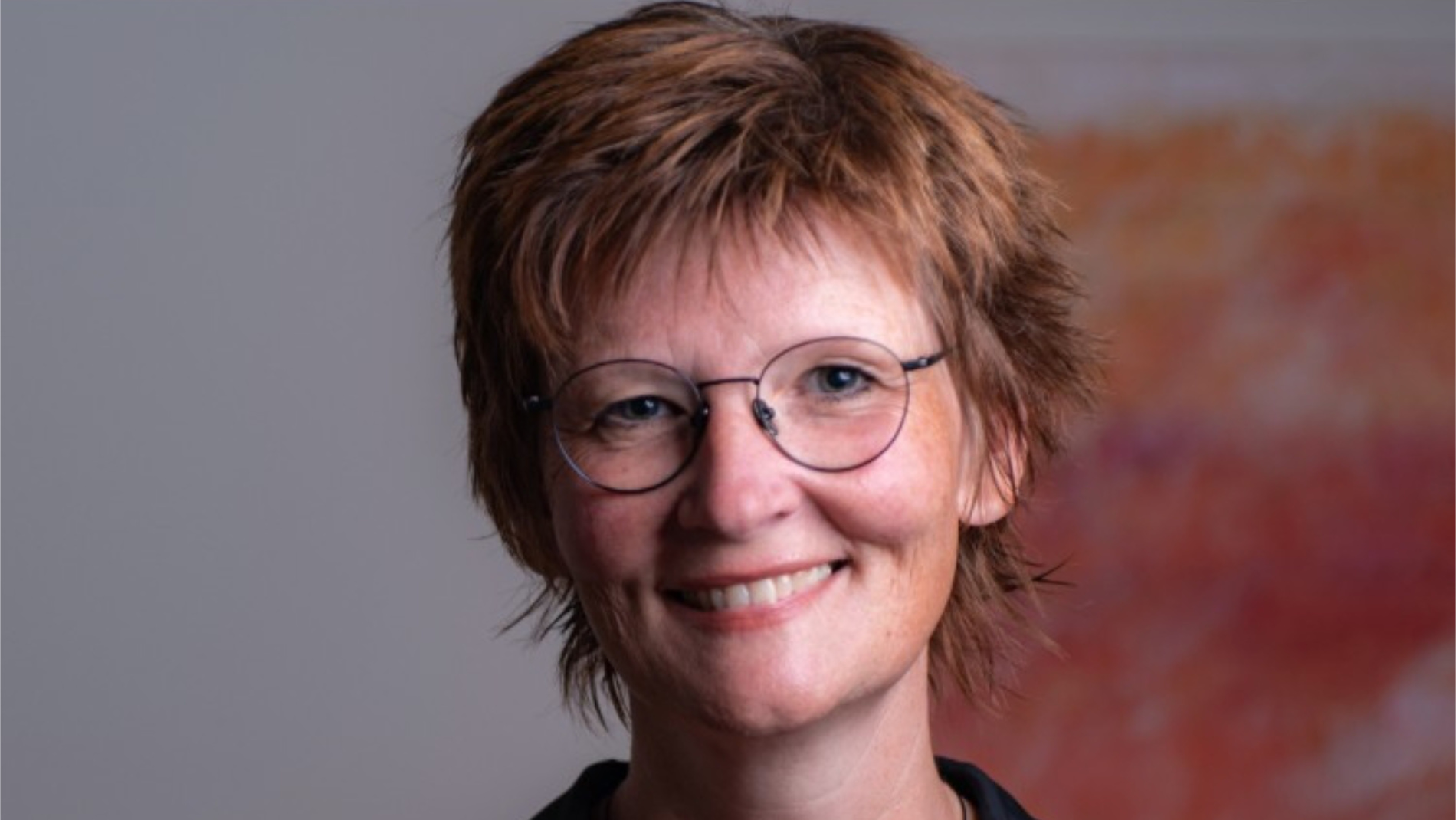
Andrea Reidl – Freelance Journalist and Author
Andrea Reidl is a journalist, author, speaker and presenter with a focus on mobility and urban development. She gives workshops, hosts professional events and gives lectures on current developments in the mobility sector.
As a freelance author, she writes for magazines such as Zeit Online, Spiegel, fairkehr, and Veloplan, among others. She also runs the Busy Streets magazine at RiffReporter, which was funded by the Zeit Foundation for two years.
Hanka Kupfernagel
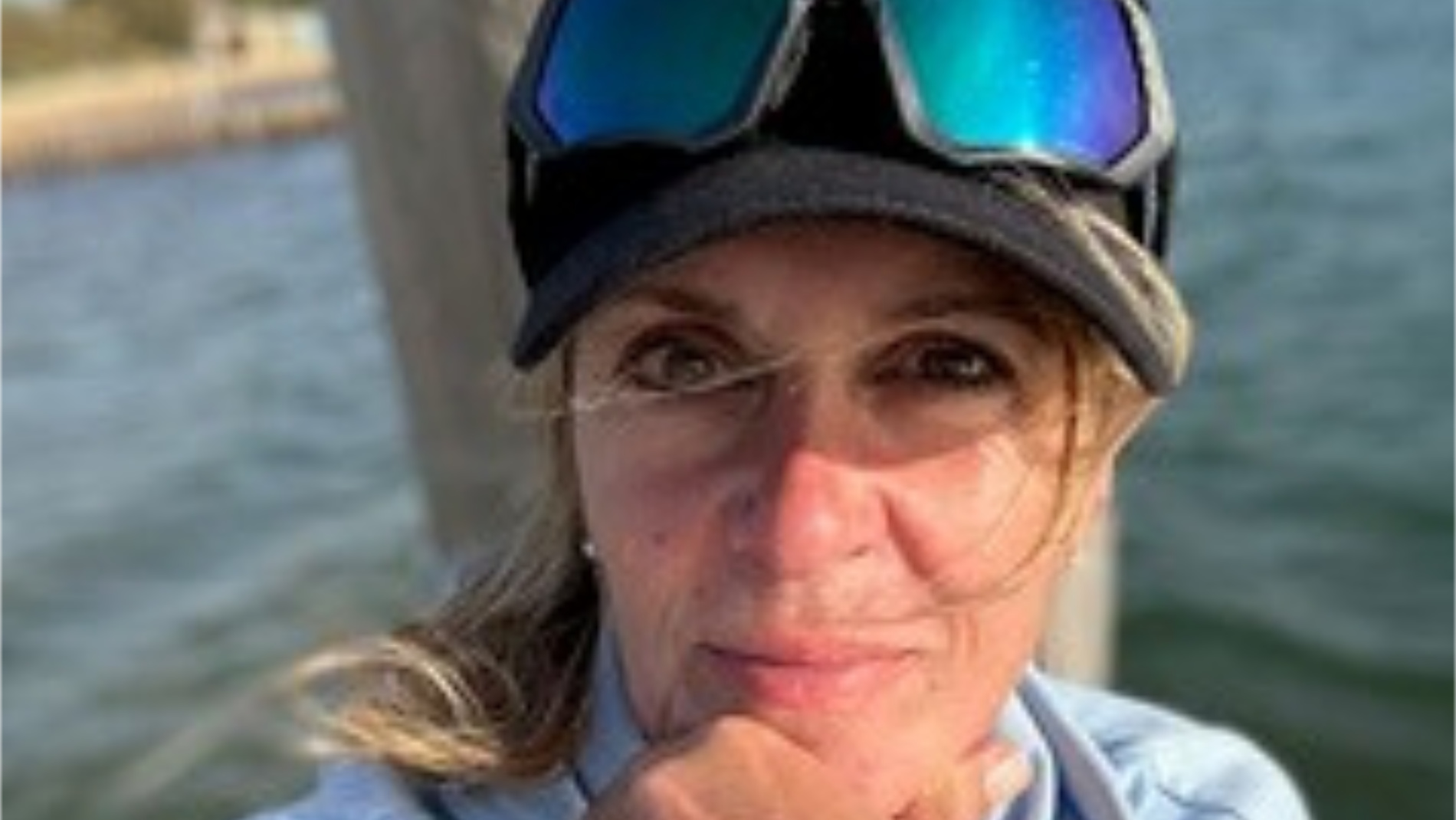
Hanka Kupfernagel – Cyclist, 8x World master, 35x German, entrepreneur, commentator and cycling expert
Hanka Kupfernagel is among the most successful German Cyclists and shaped international women’s cycling for over 25 years. She won numerous titles in multiple disciplines, among them Road, individual time trial, cyclocross, and track. Her biggest achievements being an Olympian silver medal in the 2000 road race, four world master titles in cyclocross as well as a world master title in the 2007 individual time trial. She has won a total of 35 German championships in various disciplines.
After her last race at the 2019 German Cyclocross Championships, she remains active in cycling. Today, she works as a personal coach, organizes bike events, and is the owner of the La Hanka brand. Since 2022, she has also been appearing as a co-commentator and cycling expert for ARD, WDR, and MDR, including at the Tour de France Femmes.
Jan-Willem van Schaik
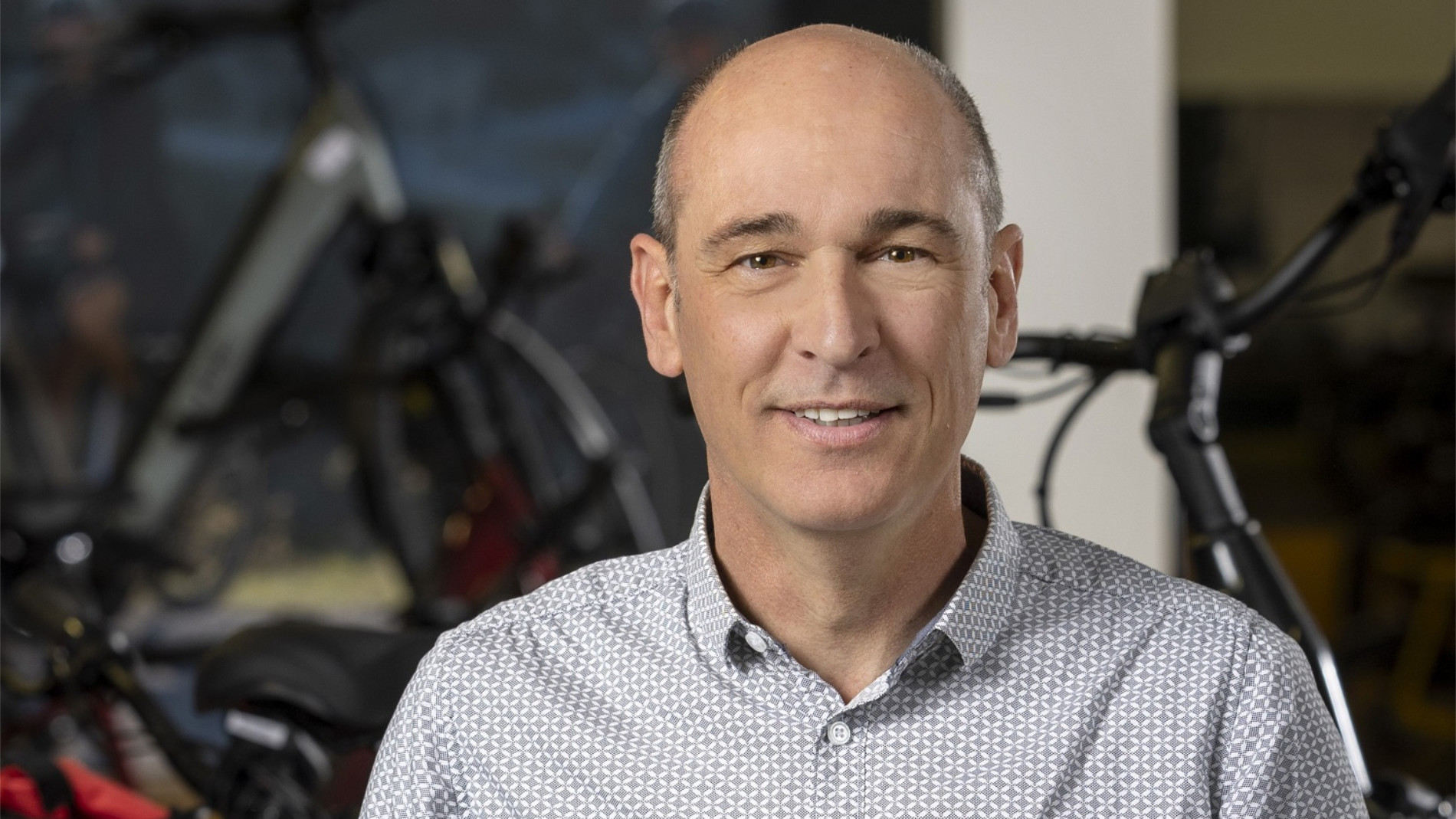
Jan-Willem van Schaik – Editor-in-chief Bike Europe
Jan-Willem van Schaik has been part of the Bike Europe editorial team since 2007. Prior to that, he worked for almost ten years in the B2B media landscape of the Benelux bicycle industry. As a close observer of important market changes, including the introduction of e-bikes, he developed a deep understanding of the industry and its dynamics.
With this background, he follows developments from different perspectives and contributes to establishing Bike Europe as the leading source of information for the bicycle industry.
Jessie Ridler
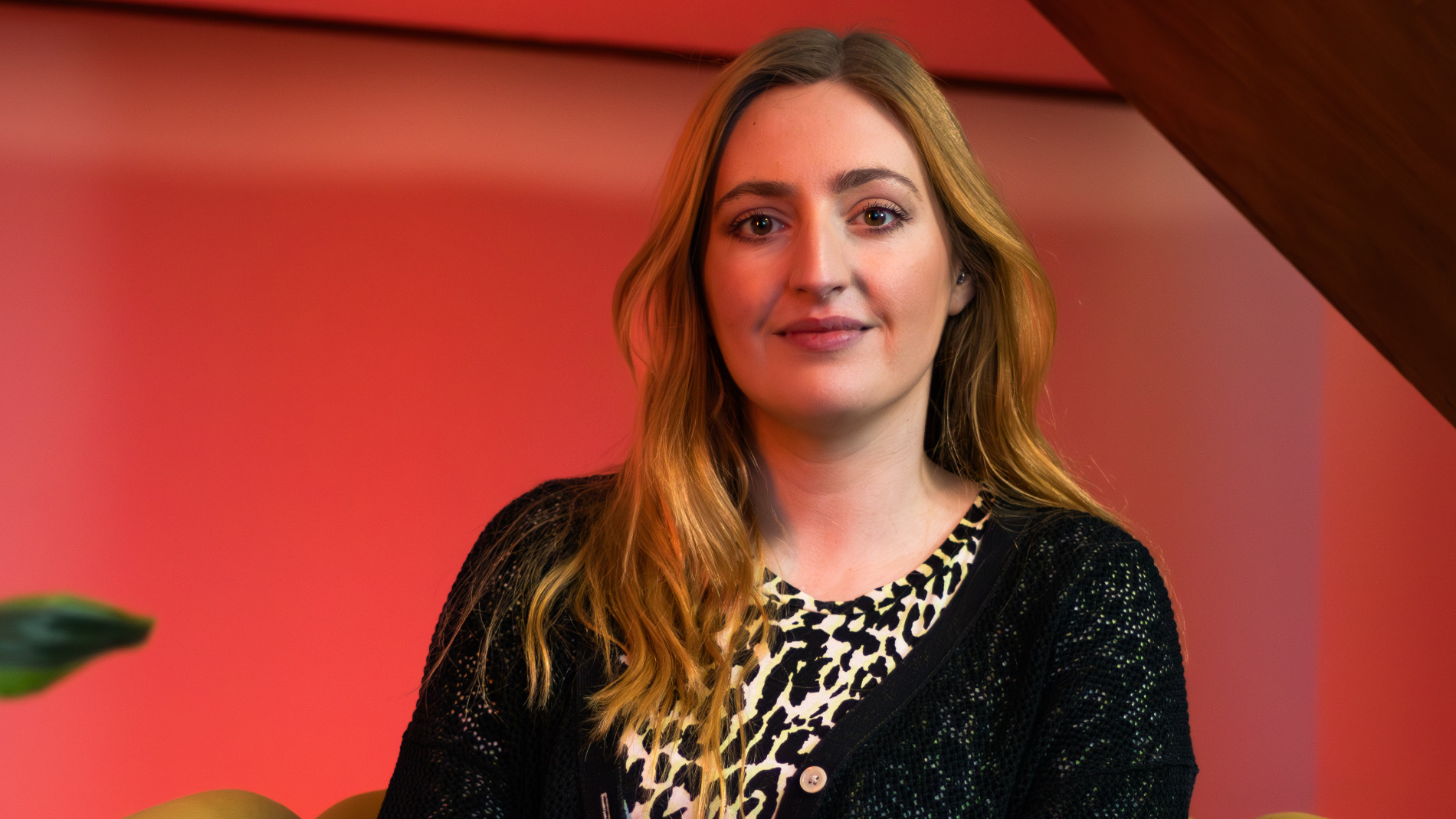
Jessie Ridler – Engineering Project Manager Minimal; Design engineer
Jessie Ridler brings over a decade of experience working and studying in engineering, product development, and technical compliance. She studied Product Design Engineering at Loughborough University and holds an HNC in Mechanical Engineering. In 2023, Jessie moved into the micromobility and electric cargo bike sector, working as a design engineer before transitioning into technical compliance. Her work focused on defining EU market-access strategies, interpreting standards and directives, and building robust technical documentation frameworks to support compliant product launches. In 2025 Jessie joined Minimal as an Engineering Project Manager. At Minimal, Jessie coordinates engineering projects across vehicle design, electronics, software, technical compliance, test & validation and manufacturing. Jessie also works closely with SUFA (Sustainable Urban Freight Association) and LEVA (Light Electric Vehicle Association) to help shape the future of this very exciting industry.
Katrin Dröge-Berzedjou
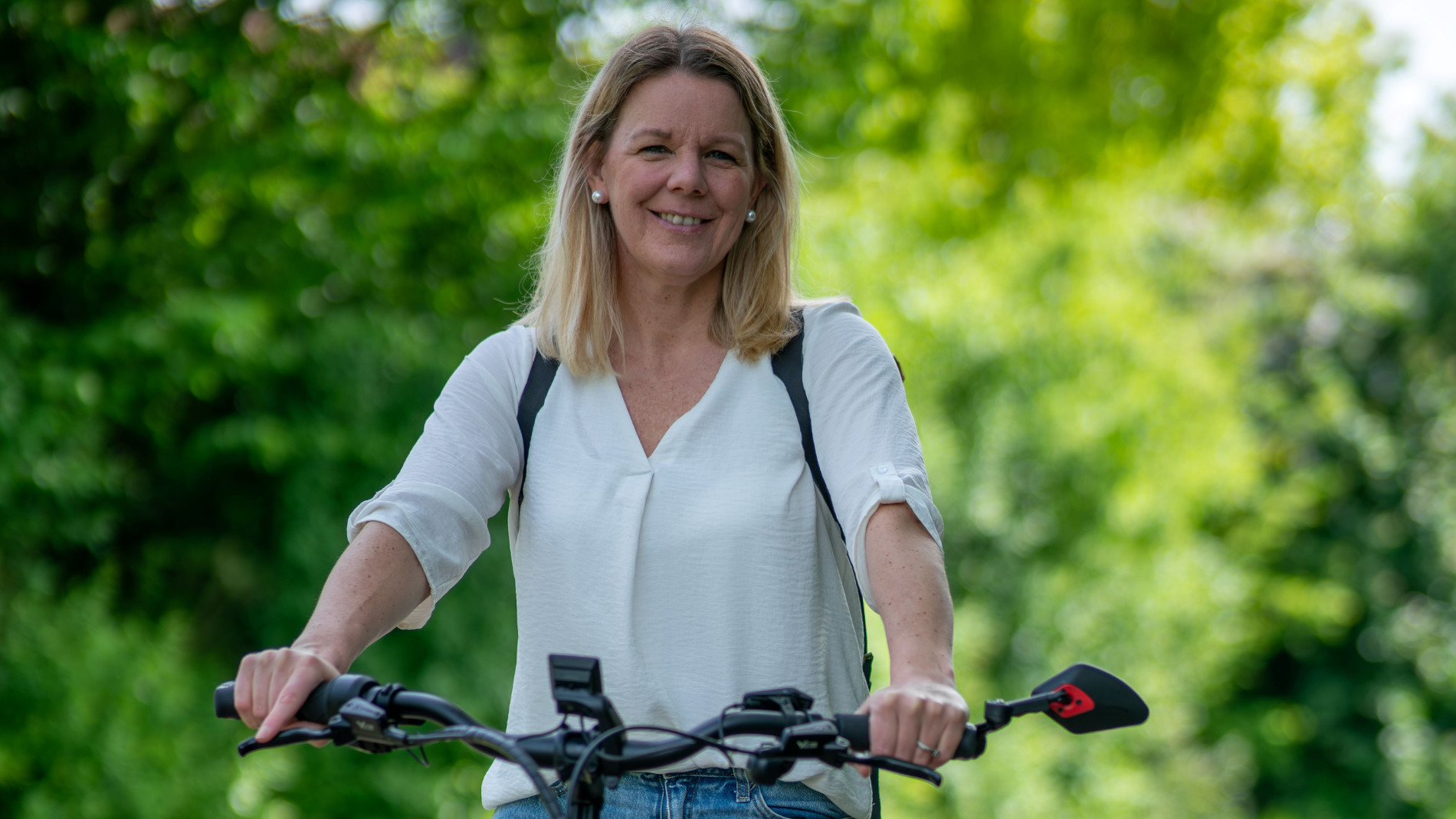
Katrin Dröge-Berzedjou – Owner and CEO feine räder Bielefeld GmbH & Co. KG and Radhaus Mobility GmbH & Co.KG
Katrin Dröge-Berzedjou is a manager in the bicycle industry and has been responsible for projects at the interface of product development and marketing for many years.
She develops marketing strategies, organizes trade fairs and events, and accompanies new products from the initial idea to market entry.
Since 2025, she has been the owner and managing director of Radhaus E-Bike Mobility GmbH & Co. KG and Feine Räder GmbH & Co. KG. In these roles, she combines operational responsibility with the strategic development of the locations.
Marco Brust
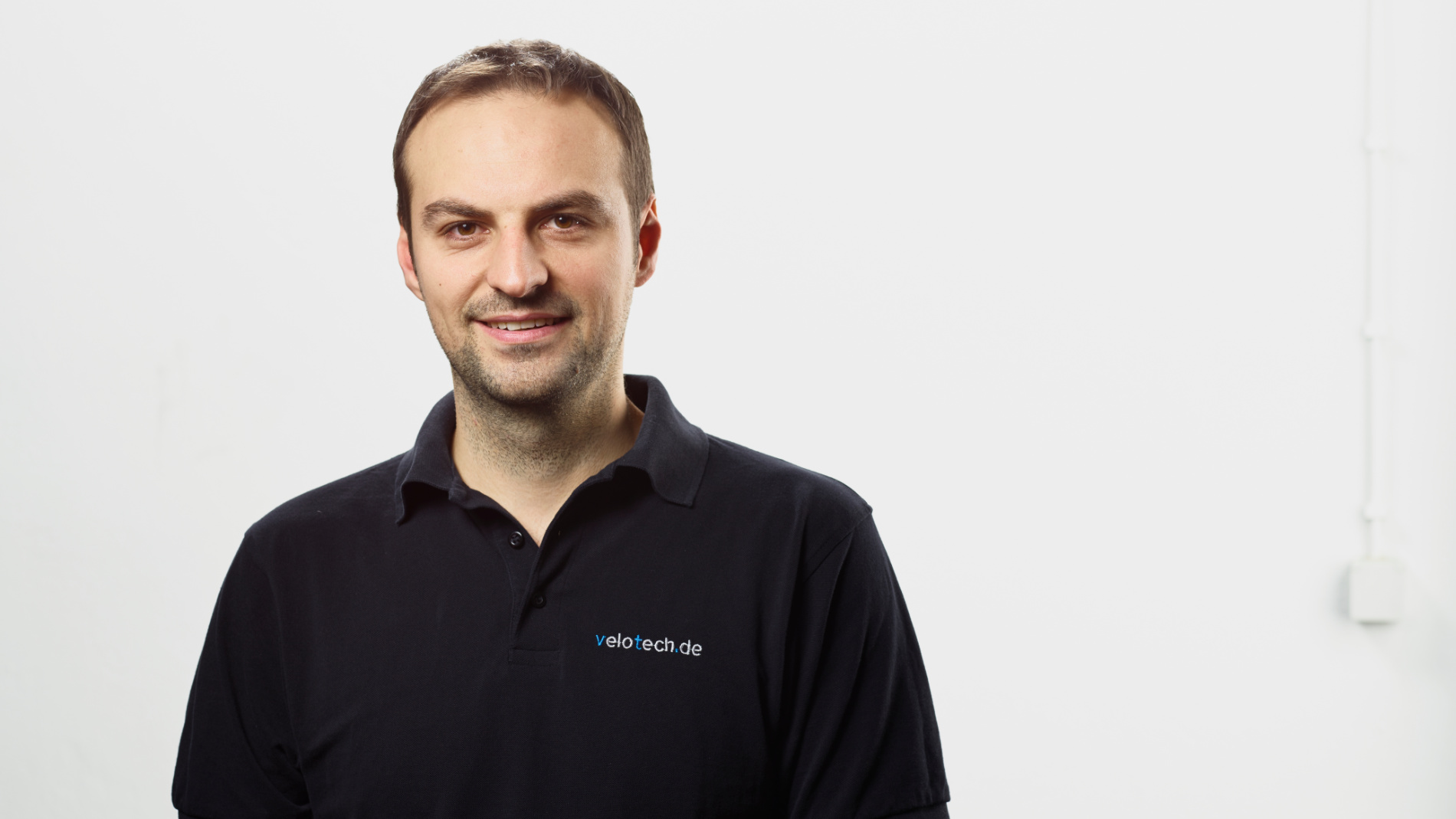
Marco Brust – Geschäftsführer Velotech
Marco Brust, born in 1986, is the managing partner of velotech.de and has learned the testing profession from the ground up. From an early age, he experienced the development of the family business firsthand and has been actively working in the company for over 15 years. In 2018, he took over management from his father, Ernst Brust. Marco is a trained electrician and completed further training as a master bicycle mechanic. He then studied mechanical engineering in Schweinfurt. During a multi-year stay in Taiwan and China, he gained extensive experience in bicycle manufacturing and acquired deep insights into the various facets of the industry. In addition to his role at velotech.de, he is actively involved as a chairman in national, European, and international standardization committees. Through his voluntary commitment, he contributes significantly to the further development of the industry.
Miłosz Kędracki

Miłosz Kędracki – Founder and editor bikeBoard, experienced bike tester
Miłosz Kędracki began his professional journey in 1992–1995 as a bicycle mechanic in Oslo, Norway, while completing his studies. Upon graduation, he returned to Poland and proposed launching a monthly cycling magazine to his colleagues.
Since 1996, he has been integral to bikeBoard's operations—writing, testing bicycles, managing distribution, organizing reader events, and serving as editorial secretary. When the publisher retired in 2001, Kędracki acquired the title, developing the magazine beyond initial projections. bikeBoard tests a large number of bicycles annually. Kędracki personally tested the majority of these models and authored or supervised their reviews. Over his tenure, this translates to thousands of bicycles and hundreds of cycling components assessed—representing substantial expertise and comprehensive market knowledge.
In 2018–2019, he sold the publication and stepped back from editorial management. However, the new ownership brought him back within a year. In recent years, Kędracki has focused on consulting, mentoring, writing, translating, introducing brands to the Polish market.
Nils Holger Moormann
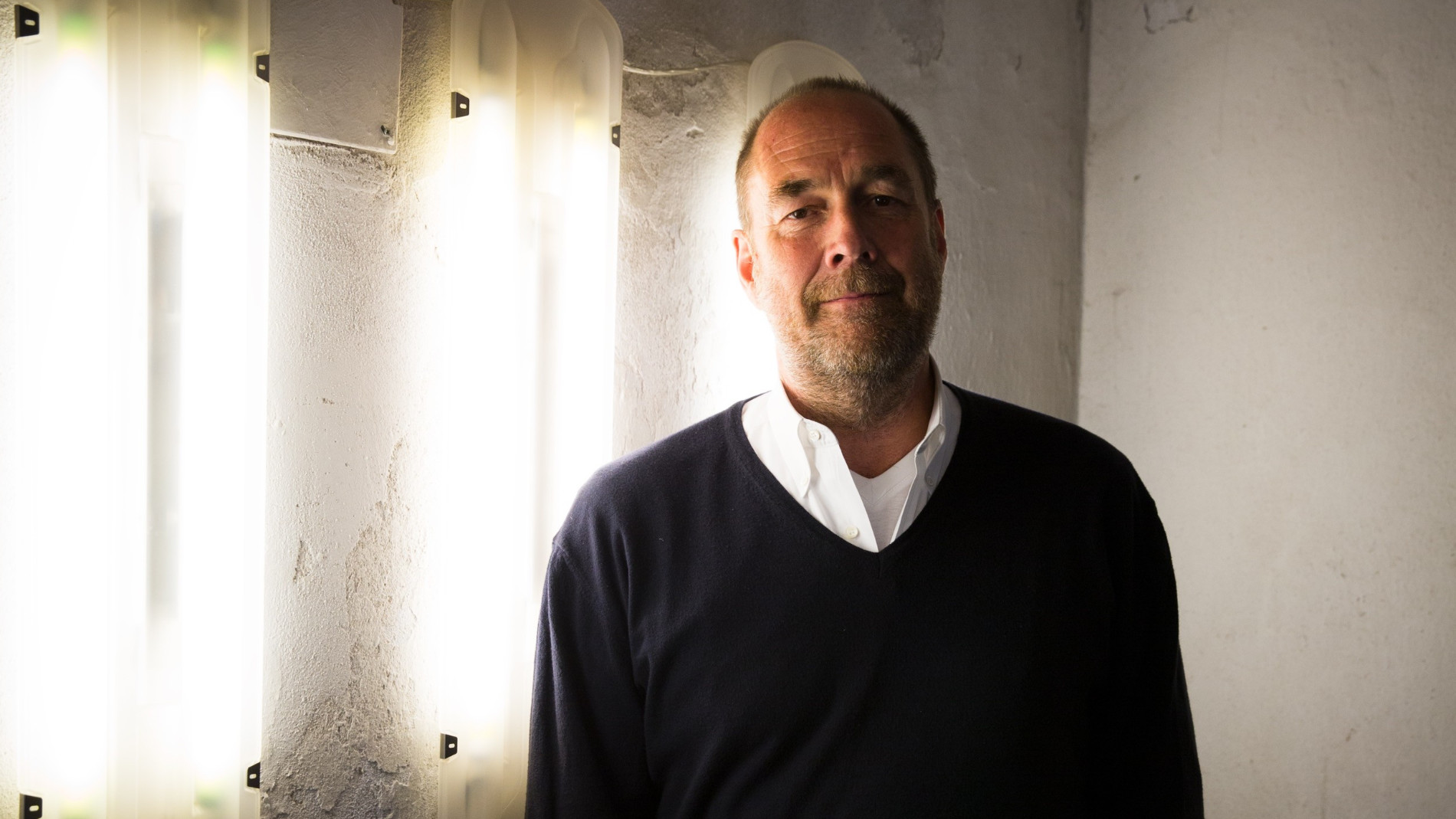
Nils Holger Moormann – multi-award-winning designer and art director
Die Welt am Sonntag claims: Nils Holger Moormann is like his furniture, and his furniture is like him—intelligent, ascetic, humorous, and clever. Since 1982, as a self-taught designer and career changer, he has been developing furniture with a minimalist design language and precise detailing. In 2020, he handed over his eponymous company to new owners and has since been working in the Nils Holger Moormann Art Direction formation. Nils Holger Moormann has received over 60 awards for his designs, and many of his works are represented in museums throughout Europe.
In addition to his work as a designer, he is involved as a juror, coach for young designers, and guest professor at the Kunsthochschule Kassel.
EUROBIKE AWARD Winners 2025
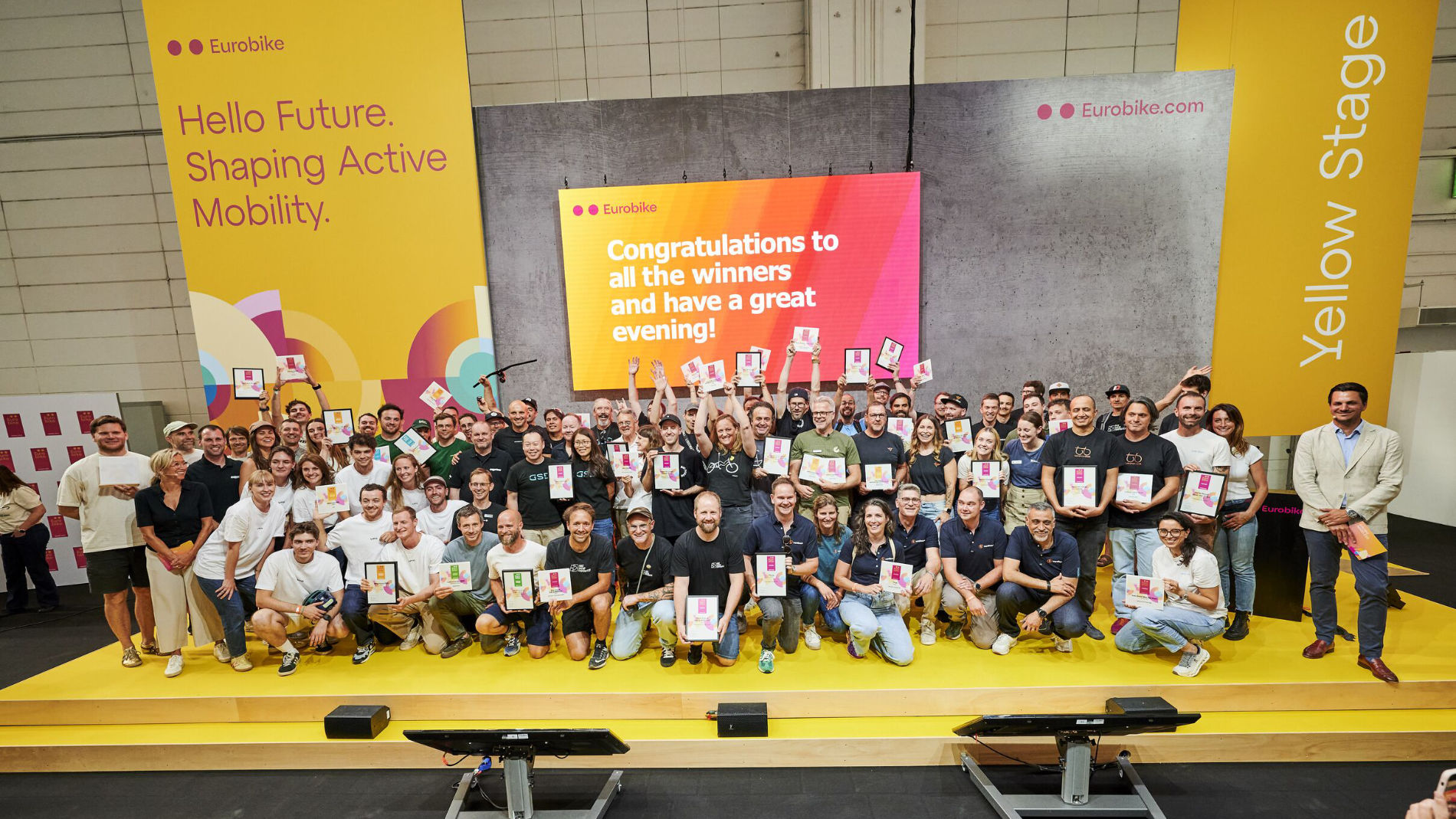
A renowned jury of experts from the bike and mobility industry evaluated over 300 submitted products based on the degree of innovation, functionality, sustainability, design as well as processing quality and material selection.
Congratulations to the 37 winners! In particular, 9 entries received the EUROBIKE Award in Gold as well as the two winners of the GREEN and START-UP Awards.
Contact
Do you have questions regarding the EUROBIKE AWARD 2026? We will be happy to help you!
Register Now